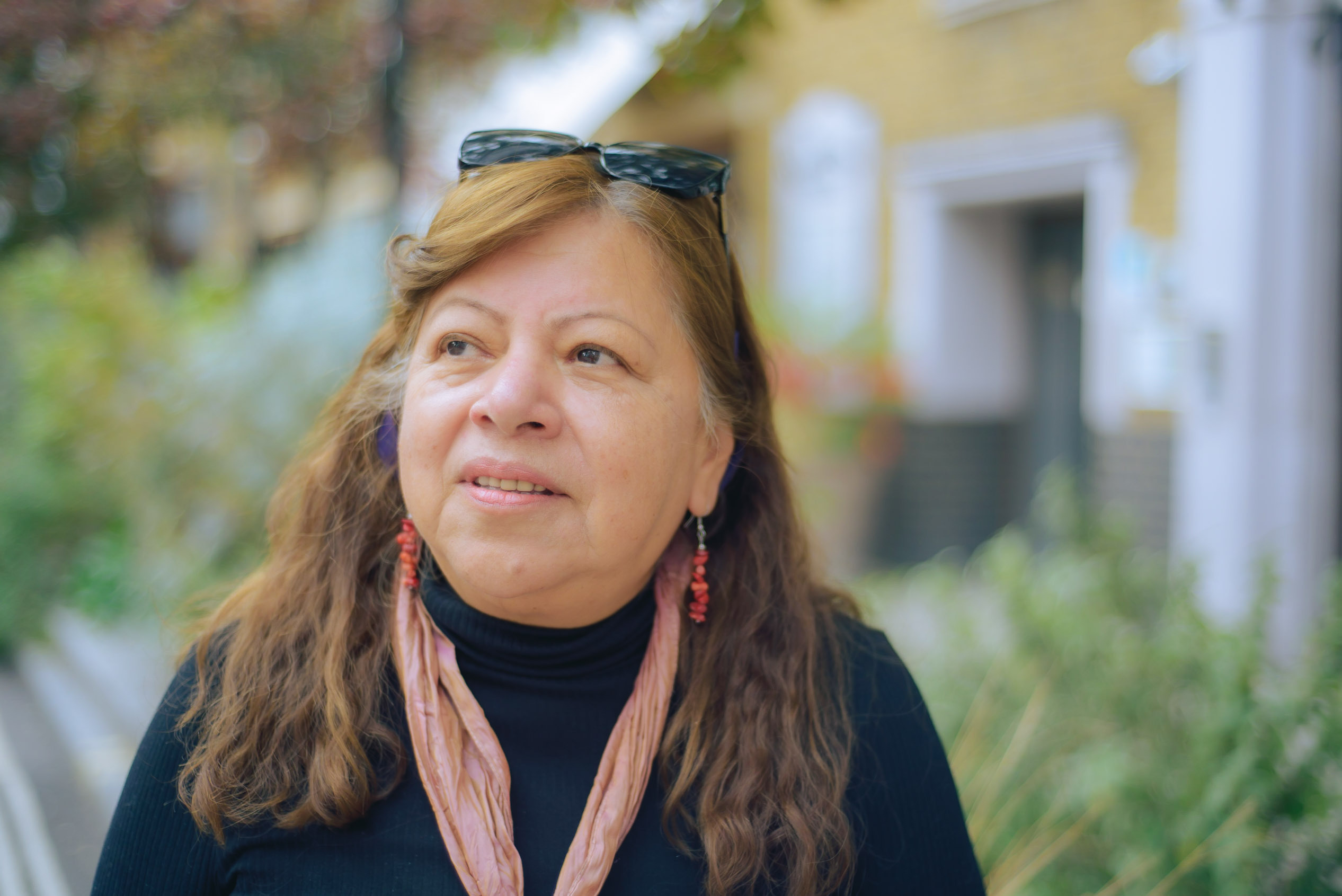#HeroesOfLondon is shining a light on the humans behind our small charities and the amazing – and vital – work they do in London's communities, during the cost-of-living crisis and every day. We spent the last month meeting just some of these local heroes.
The transcript below is from our chat with Angie, Deputy Director of Latin American Women's Aid. She shared LAWA's story on our Heroes' behalf.
The photos in this post are of María, Latin American Women's Aid's VAWG Advice Centre Coordinator.
I have been at LAWA since 2019. I first started as a volunteer when I was eager to work with my community after migrating by myself to London. After finishing my degree in 2020, I applied to be part of the VAWG (Violence Against Women and Girls) caseworker team. I worked two years as VAWG Caseworker and am currently the VAWG Advice Centre Coordinator.Maria
Organisationally we have seen the impact on two sides. One is that we manage three safe houses across London and their electricity bills are literally so expensive right now. Really, really expensive. We have had an increase in the rent on our main building and also at the refuges. So, we are paying more for rent and electricity and gas. So that’s on the building side of things.
Then on the other side there’s the staff. The charity sector has been historically a less well-paid sector. So, we have had discussions here at lunch – we can hear how worried our colleagues are about being able to make it to the end of the month. If they're going to be able to turn the heating on during the winter. And it's difficult, you know, to hear those things.
As the leaders of the organisation, we depend on funding. Different roles depend on different projects, so it really is a complex system. You cannot make just the decision to raise everyone’s salary, even if you wanted to. So, we are losing knowledge, we're losing people that are moving to other sectors that are better paid. We're struggling to recruit because our salaries are just lower. Even if we offered 2-3% increases, that is literally already a pay cut. So, it is hard in general as a sector, as the charity sector, to have the lowest salaries.
It is a tough job. The team do fantastic work. They are the ones who are on the front line, providing all that support for these women. I'm just so proud that I get to share my working space with them.
They are the ones who are dealing with that secondary trauma that you get after listening to one woman after the other, after the other, who are survivors of such horrible trauma. We relate to them in that we're all migrant women. So, we know some of the struggles that the women may have gone through when they migrated from their home countries. We know what it's like to be far from your family and your friends and have no network.

